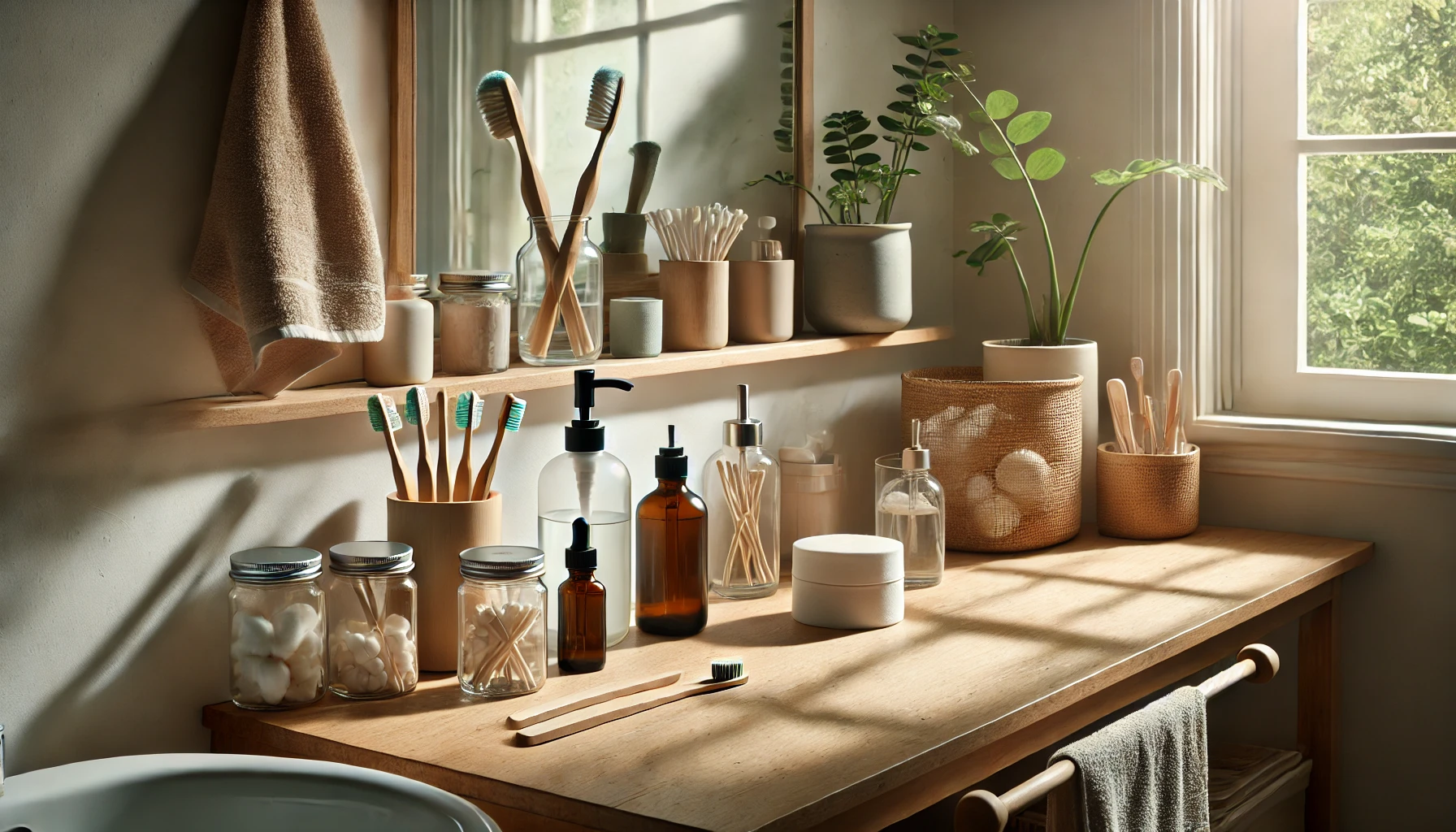1. Start with Reusable Items: Ditch the Single-Use Plastic
One of the easiest and most effective ways to reduce plastic waste is by replacing single-use plastic items with reusable alternatives. Many of us rely on plastic water bottles, straws, and shopping bags without realizing how quickly they add up. The good news? There are simple swaps you can make today that will drastically cut your plastic consumption.
-
Switch to reusable water bottles and coffee cups: Did you know that 1 million plastic bottles are purchased every minute worldwide? Instead of buying plastic bottles, invest in a durable, reusable water bottle. The same goes for coffee cups—many cafés offer discounts for bringing your own cup!
-
Say no to plastic straws: Straws are often unnecessary, and plastic ones are among the top items found in ocean cleanups. Consider using a metal or silicone reusable straw, or simply go without one.
-
Use reusable shopping bags: Plastic bags are used for an average of 12 minutes but can take up to 1,000 years to decompose. Carrying reusable tote bags is an easy fix and can make a massive difference over time.
2. Rethink Your Food Storage and Shopping Habits
Plastic sneaks into our lives in many forms, especially in the kitchen. From food packaging to storage, there are many ways to reduce plastic use without compromising convenience.
-
Choose glass or silicone storage containers: Instead of using plastic wrap or single-use plastic bags, opt for glass or silicone containers to store food. Beeswax wraps are another fantastic alternative to cling film, and they’re reusable and washable.
-
Buy in bulk: Shopping in bulk reduces the amount of packaging you bring home, and it's often more affordable. Bring your own containers or bags to stores that allow bulk purchases of items like grains, nuts, and spices. This is an excellent way to reduce the plastic waste that comes with individually wrapped products.
-
Shop locally and avoid overpackaged goods: Farmers' markets and local stores often sell produce without plastic packaging, unlike many supermarket chains. By supporting local farmers and markets, you can get fresh, often organic food with minimal plastic waste.
3. Personal Care Products: The Plastic-Free Alternatives
From shampoo bottles to toothpaste tubes, many personal care products come in plastic packaging that we toss without thinking. Fortunately, there are eco-friendly alternatives that can reduce your waste significantly.
-
Try shampoo and conditioner bars: These solid bars are package-free and can last longer than traditional bottled shampoos. Many companies now offer bars that work for various hair types.
-
Swap plastic razors for metal ones: Disposable plastic razors are often thrown away after just a few uses. Instead, switch to a safety razor with replaceable metal blades that last longer and are recyclable.
-
Opt for bamboo toothbrushes: Plastic toothbrushes are another item that ends up in landfills, where they can take hundreds of years to decompose. Bamboo toothbrushes are a biodegradable option that works just as well.
4. At Home: Small Steps to Reduce Plastic in Daily Life
Even the most eco-conscious among us can find hidden plastic waste in everyday items. Luckily, with a little effort, there are ways to reduce this waste in your home.
-
Laundry tips: Did you know that synthetic clothes like polyester release tiny plastic fibers into the water during washing? These microplastics eventually make their way into oceans. Consider using a microfiber-catching laundry bag to trap these fibers.
-
Use bar soap instead of liquid: Liquid soaps often come in plastic bottles, whereas bar soaps are usually wrapped in paper or sold package-free. They work just as well and last longer.
-
Switch to plastic-free cleaning products: Many cleaning products come in plastic containers, but there are alternatives like reusable spray bottles and refill stations. Look for concentrated cleaners that come in minimal packaging, or make your own with simple ingredients like vinegar and baking soda.
5. Unique Insights: The Hidden Benefits of Reducing Plastic Waste
Reducing plastic waste isn’t just good for the environment—it’s good for you, too! Here are a few benefits you might not have considered:
-
Save money: Reusable items like water bottles, coffee cups, and grocery bags might have an upfront cost, but they save you money in the long run. Plus, many stores offer discounts for bringing your own bags and cups.
-
Healthier choices: By cutting out plastic-wrapped, processed foods, you’ll find yourself gravitating toward fresher, healthier options like fruits and vegetables. Less plastic means fewer preservatives and chemicals, which can be better for your health.
-
Foster a mindful mindset: As you start reducing plastic, you’ll notice how it makes you more conscious of your consumption habits in general. This mindfulness can extend to other areas of your life, encouraging you to live more sustainably overall.
Conclusion: Every Bit Helps, and It Starts with You
Cutting down on plastic waste in your daily routine doesn’t have to be complicated. By making small, intentional changes—like using reusable bags, shopping locally, and switching to plastic-free personal care products—you’ll significantly reduce your environmental impact. And remember, it’s not about being perfect; it’s about making progress. Each step you take toward reducing plastic waste is a step toward a healthier planet.
















